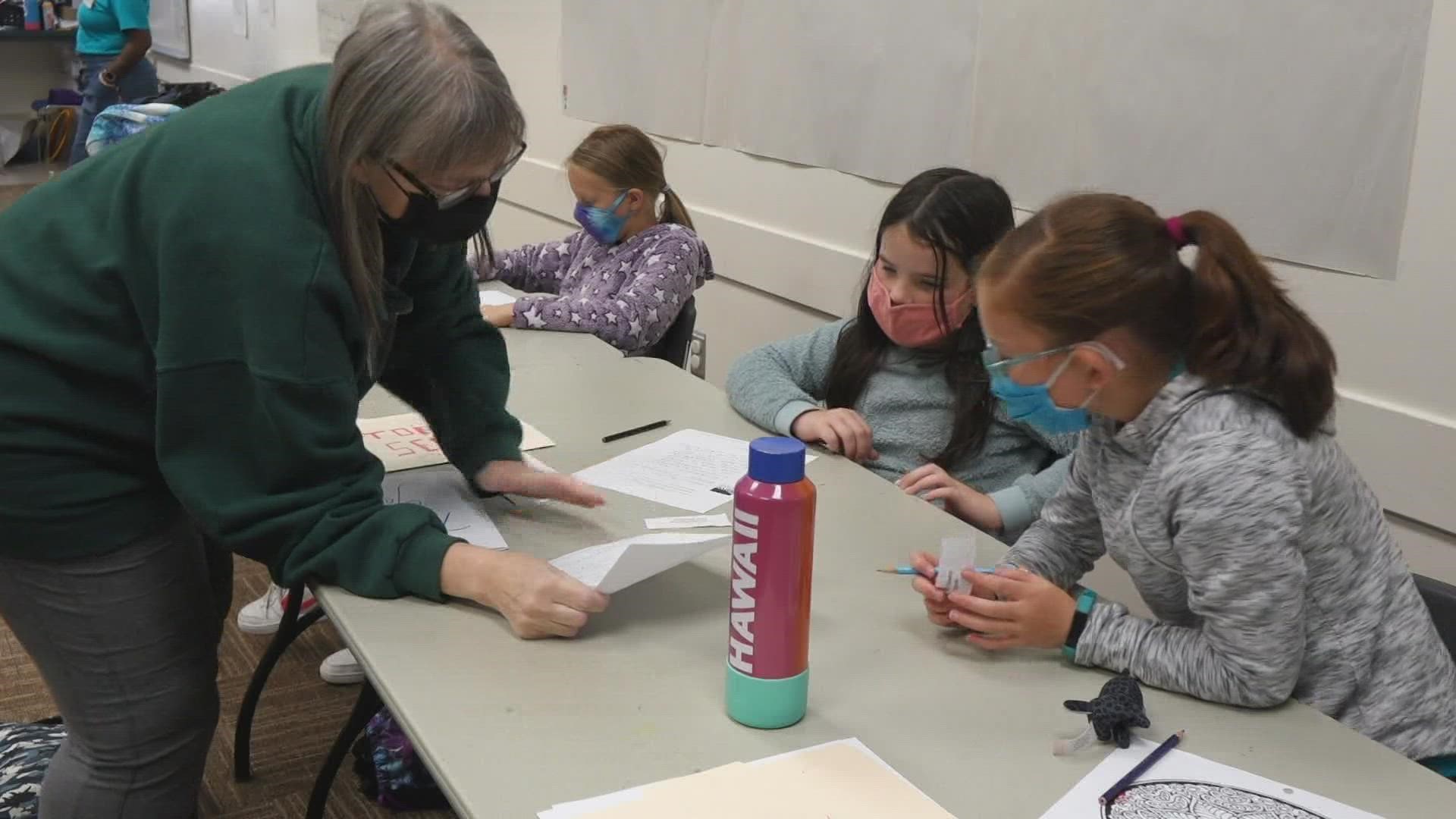SEATTLE — Woodland Park Zoo is saying bye to summer by welcoming some dedicated young animal rights advocates to a unique summer camp.
It’s the first time Woodland Park Zoo has offered a program like this - a joint effort with U.S Fish & Wildlife service.
“Wildlife Crime Detective Camp” teaches kids the harsh reality of animal trafficking. Bobbi Miller has been with the zoo since 2009 and manages the Wildlife Conservation program.
“I think a part of the problem is that people aren’t aware that trafficking doesn’t happen thousands of miles away. It happens right here in the United States," Miller said.
She and her team welcomed a few dozen happy campers with a photo-filled presentation and put their detective skills to work online. The campers were given the task to use the internet to see if they could find and purchase a tiger. The campers found a tiger in less than one minute at a cost of $1,300.
The illegal selling of exotic animals amplifies the bigger problem. Miller said there are fewer than 4,000 in the wild. On the flip side, there are 5,000 to 10,000 known Tigers being kept privately or at roadside attractions.
“That’s in the U.S. alone,” Miller said.
The crescendo of the camp experience is to engage the newly-informed campers with an opportunity to fight for change. There are currently five states with no laws regarding exotic animals.
In 2015, voters overwhelmingly passed Washington’s Animal Trafficking Act. I-1401 prohibits the trafficking and sale of exotic animals.
Now, Woodland Park Zoo is leading the charge in encouraging young advocates to write to the United States House of Representatives. The hope is to pass the Big Cat Public Safety Act. Campers were given the names of various state representatives and took the time to write passionate letters pleading for the serious consideration of banning private ownership of big cats.

